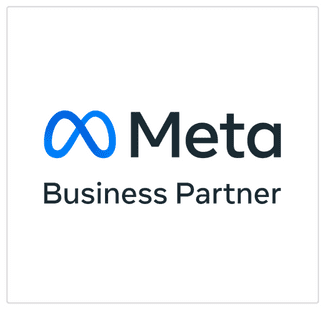Recently, I had the privilege of attending a live broadcast hosted by Google, focusing on the latest advances in data tracking and management, BigQuery as well as much more.
The event, led by Mihal Kagdaf, cloud architect and data engineer, provided an in-depth look at how Google Cloud data solutions can revolutionize marketing analytics and operational efficiency. In this article, we share key findings and explore how these innovations can benefit your organization.
Transforming marketing data into actionable insights
The power of Google Cloud Platform
Google Cloud is a leading cloud computing platform that offers a wide range of services for data management and analytics. With advanced tools like BigQuery, Dataflow and Pub/Sub, Google Cloud enables companies to transform raw data into valuable insights. The platform offers scalable, secure and cost-effective solutions for storing, processing and analyzing data, making it easier to make informed decisions and optimize business strategies.
One of the major promises presented in the session was the ability to generate comprehensive marketing reports in just minutes or even seconds, while reducing operational costs by up to 60%. This significant improvement is made possible by Google Cloud’s advanced data infrastructure, which ensures fast, reliable and actionable insights.
Core concepts of data platforms
Mihal Kagdaf stressed the importance of a data-driven philosophy, where data is treated as a critical asset. This mindset requires cultural changes within organisations to ensure that data is leveraged effectively. Google Cloud facilitates this transformation through robust data governance and powerful analytics tools.
Now companies can be data-driven
Standard Reports
Standard reporting involves integrating core data, such as monthly sales reports. These reports provide an overview of overall business performance and help monitor progress over time. They are essential for evaluating the success of implemented strategies and identifying sales trends.
Ad-hoc reports
Ad-hoc reports are custom reports created on demand, responding to specific business queries. These reports allow users to extract accurate and relevant information for various business decisions, providing flexibility and speed in data analysis.
Query Drill Down
Query Drill Down refers to detailed investigations of specific issues. For example, if there is a decline in sales in a particular location, this function allows you to explore the potential causes through detailed analysis of relevant data. This allows problems and possible solutions to be identified quickly and efficiently.
Alerts
Alerts are automatic notifications for critical measurements, such as low inventory levels. These notifications help prevent problems by alerting users in real time to situations that require immediate attention. They ensure proactive management of operations and reduce the risk of downtime.
Analytics
Statistical analysis
Statistical analysis involves understanding why certain events happen through basic statistical models. This analysis helps to identify factors that influence performance and to formulate data-driven conclusions.
Forecasting and extrapolation
Forecasts and extrapolations are based on predicting future trends using current and past data. This technique allows anticipating changes and preparing for future challenges or opportunities, improving strategic planning.
Predictive modelling
Predictive modelling uses advanced statistical models and machine learning to predict future outcomes. This technique provides valuable insights into potential business developments and helps optimise business decisions.
Optimisation
Optimisation is about determining the best strategies to maximise results. For example, optimising pricing strategies can lead to increased profits and customer satisfaction. By analysing data and applying predictive models, organisations can identify the most effective approaches to achieve their objectives.
Unified data platforms
A significant challenge for marketing analysts is managing data stored in different systems. Google’s solution is a unified data platform on Google Cloud, which integrates data from various sources into a centralized system. This approach improves data quality and accessibility, making it easier to generate insights and take action.
Data Warehouses vs. Data Lakes
In data management and analysis, the choice between a Data Warehouse and a Data Lake is crucial, each having distinct characteristics and being suitable for different types of data and business needs.
Data Warehouses
Data Warehouse is a storage solution optimised for structured data and complex queries. It is designed to collect, organise and analyse data from multiple sources, providing valuable information for strategic decisions.Structured: Data is pre-processed and organised in a structured format, which facilitates fast and efficient queries.
High performance: Optimized to run complex queries and analysis in real-time.
SQL Queries: Full SQL language support, allowing users to create complex reports and analysis without the need for advanced programming skills.
Specific use: Ideal for periodic reports, financial analysis and any other application that requires accurate and structured data.
Data Lakes
Data Lake is a flexible solution for storing raw, unstructured, or semi-structured data, allowing data to be kept in its original form until needed for analysis.
Flexibility: Allows storage of any type of data – structured, semi-structured and unstructured – such as log files, streaming data, images and videos.
Scalability: Able to handle large amounts of data at a low cost, designed for horizontal scalability.
Exploration and discovery: Suitable for data mining, machine learning and other analytics applications that require access to raw data.
Advanced queries: Supports advanced queries, including SQL, but also other programming languages, to extract relevant information from raw data.
Key Google Cloud tools and services
BigQuery stands out as a fully managed, serverless data warehouse that efficiently manages large datasets. It decouples storage from computation, allowing each to scale independently. Thus, you only pay for the queries you run, not the idle infrastructure, making it cost-effective.
Data Ingestion Tools
Google offers various tools to simplify data ingestion in BigQuery:
Cloud Storage: for quick and easy file uploading.
gsutil: Command line tool for larger data transfers.
BigQuery Data Transfer Service: Automates regular data transfers from various sources, such as Google Ads.
Pub/Sub and Dataflow: For real-time and batch data feeds.
Implement effective data governance
Effective data governance is essential to ensure data integrity, security and usability throughout its lifecycle. Google Cloud provides a robust data governance framework that helps organizations properly manage data from collection to archiving, ensuring it remains a valuable and protected asset. Here are the key components of this framework:
Data discoverability
Data Discoverability refers to the easy and fast access to data needed by analysts and other users. Google Cloud provides tools that make it easier to identify and locate relevant data sets, reducing the time and effort required to access the information needed. This is essential for speeding up the analysis process and improving operational efficiency.
Data management
Data management involves documenting the data pipeline and managing data consistency. By tracking the path data takes from source to end-user, organisations can ensure data accuracy and integrity. Google Cloud offers solutions that enable documentation and monitoring of data flows, making it easier to identify and correct any discrepancies or errors.
Data protection
Data protection is crucial to ensure data security, confidentiality and compliance. Google Cloud implements advanced security measures, such as data encryption both in transit and at rest, rigorous access controls and continuous monitoring for threats. Compliance with data privacy regulations, such as GDPR, is also integrated into the governance framework, ensuring compliance with legal and industry standards.
Data accountability
Data accountability involves clearly defining ownership and responsibility for data sets. Each dataset must have a designated owner responsible for its management and maintenance. Google Cloud provides tools to help assign responsibilities and monitor performance related to data management. This ensures that all data is properly managed and that there is accountability for its quality and security.
Conclusion
Google Cloud’s suite of tools and data services offer a comprehensive solution for transforming raw data into useful information. By leveraging these technologies, organizations can significantly improve their data analysis capabilities, make informed decisions and optimize marketing strategies. As we continue to explore these tools, it’s clear that the future of data-driven marketing isn’t just promising – it’s already here.
Join us at re7consulting, where we’ll explore in more depth through case studies and blog posts, data processing, analysis and visualization, on the use of Google Cloud data solutions. Stay tuned and get ready to revolutionise your data strategy with Google Cloud.
For the right data interpretation and implementation of Google Ads campaigns that deliver visible results, call a Google Ads agency. Let your experts turn your data into effective marketing strategies!







